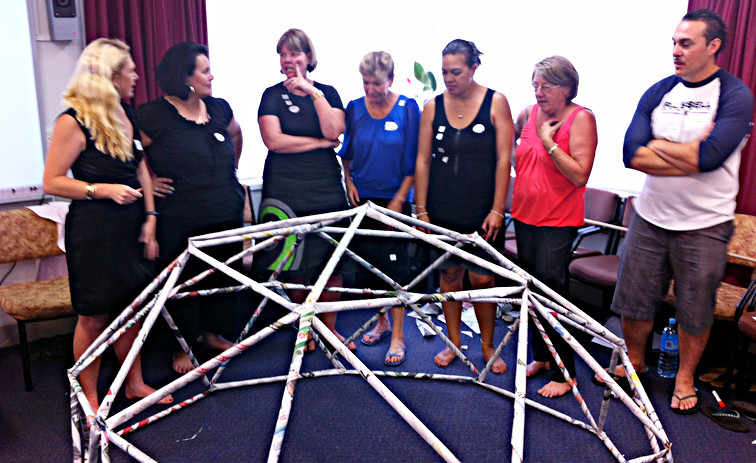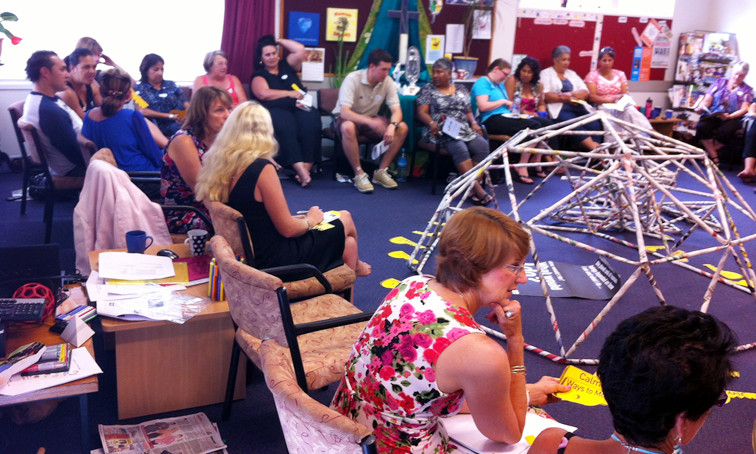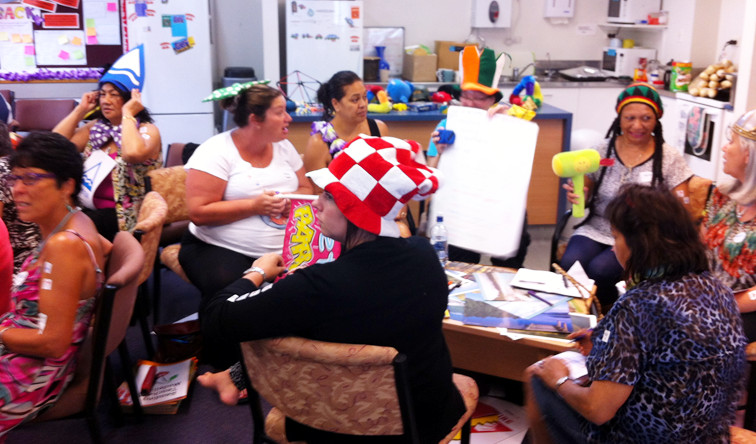Teachers transform teamwork
Teachers and staff at Holy Cross School were introduced to a new way of communicating and collaborating that improved staff relationships. As mindsets shifted, staff realised they could apply their learning with students, also proving TetraMap’s value as a thinking framework in an educational context.
Starting at the core
 Holy Cross School (HCS) is a government-run Catholic school that teaches primary and intermediate levels in the south Auckland community. TetraMap was first introduced to the school by the director of religious studies, Ann O’Grady, who suggested the staff would benefit from the model to improve self-awareness, better understand their colleagues, and improve tolerance.
Holy Cross School (HCS) is a government-run Catholic school that teaches primary and intermediate levels in the south Auckland community. TetraMap was first introduced to the school by the director of religious studies, Ann O’Grady, who suggested the staff would benefit from the model to improve self-awareness, better understand their colleagues, and improve tolerance.
Team Days add meaning
 TetraMap was implemented in a variety of ways, starting with a team-wide day using the Why are you like that? workbook. As a follow-on, the team conducted four additional TetraMap sessions that covered effective meetings, conflict resolution, communications, and activities that supported the TetraMap principles and the TetraPath of Learning Cycle. The staff at HCS finished their TetraMap journey with an additional team day that provided meaningful debriefs and activities to reinforce the key learning on communication, valuing differences and the benefits of synergy. The responses from the Staff Team indicated that it was beneficial on every level.
TetraMap was implemented in a variety of ways, starting with a team-wide day using the Why are you like that? workbook. As a follow-on, the team conducted four additional TetraMap sessions that covered effective meetings, conflict resolution, communications, and activities that supported the TetraMap principles and the TetraPath of Learning Cycle. The staff at HCS finished their TetraMap journey with an additional team day that provided meaningful debriefs and activities to reinforce the key learning on communication, valuing differences and the benefits of synergy. The responses from the Staff Team indicated that it was beneficial on every level.
Valuing four perspectives
 Principal Bruce Young said TetraMap has made a significant impact on how everyone works together. He’s noticed that understanding how each team member speaks, behaves and reacts, has helped his staff not to get upset or take things the wrong way. His staff now better understand his approach and responses and Young knows his team a lot better. Young also now understands that each person reacts and behaves differently and therefore he needs to treat them accordingly.
Principal Bruce Young said TetraMap has made a significant impact on how everyone works together. He’s noticed that understanding how each team member speaks, behaves and reacts, has helped his staff not to get upset or take things the wrong way. His staff now better understand his approach and responses and Young knows his team a lot better. Young also now understands that each person reacts and behaves differently and therefore he needs to treat them accordingly.
Improvements made throughout the school
- More effective meetings: Better outcomes as a result of setting proper agendas and using the strength of the team members.
- Conflict resolution: More awareness of individual skills and personal reactions has led to better understanding of each other. Conflict is handled better and reduced.
- Improved communication: The staff team have become more aware of each other’s Elemental preferences, allowing them to better read each other.
- Better planning: Recognising the different Elemental strengths on the team has allowed staff to implement more effective planning techniques that allow all the Elements to add value.
- Mindset shifts: The TetraMap sessions opened staff up to see themselves and others from different perspectives, leading to a more collaborative running of the school.
- Flexibility: Learning to be cautious of “pigeon-holing” others has made staff realise they are a combination of all four Elements and are able to flex to each.
Adapting learning for the students
Since the TetraMap sessions, teachers are beginning to apply the learning with their students. When designing activities, teachers have started to consider student’s preferences so they can tap into these strengths. By drawing on these strengths, classrooms have become more co-operative and foster independence rather than “micro-managing the students”, one teacher commented. Working with the students in this way has made it easier to reach goals, fulfil tasks and problem solve in different areas. Some teachers have also started to adapt their own personal styles to be more inclusive of differing learning styles. This has also been a valuable lesson when buddying up students for learning activities based on Elemental preferences.
